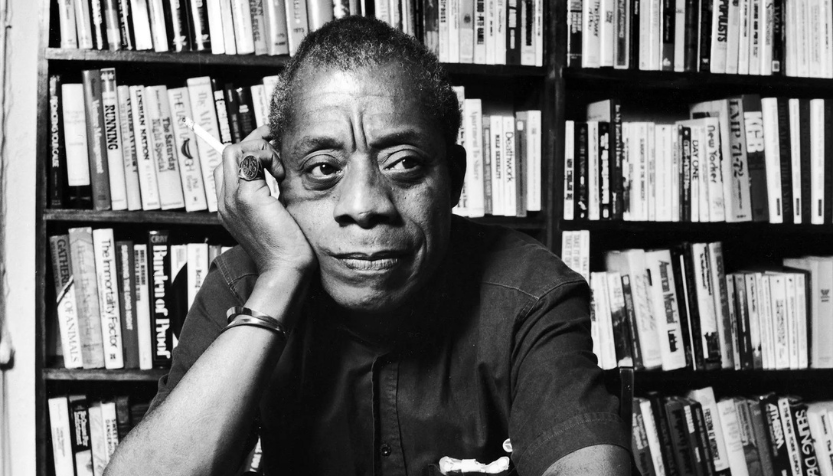Strathmore celebrates the writer and activist’s centennial with Meshell Ndegeocello and diverse community events.
By Stav Ziv
At Strathmore, the artist is the muse. So, it follows that its James Baldwin’s educational series ends with what initially inspired it: a performance of Grammy-winning singer and bassist Meshell Ndegeocello’s No More Water: The Gospel of James Baldwin.
Strathmore’s two-month series takes place during a national centennial celebration honoring the life and legacy of one of the 20th century’s most important American writers and civil rights activists. It kicked off on August 2, Baldwin’s birthday, with a screening of the documentary James Baldwin: The Price of the Ticket, followed by a conversation between the filmmaker, Karen Thorsen, and Katea Stitt, program director at WPFW.
The film was curated by George Mason University (GMU) English professor Keith Clark, one of several Baldwin experts collaborating with Strathmore on the series. Clark believes his “literary godfather” Baldwin didn’t receive the recognition his work and artistry deserved during his lifetime. “It’s important at this [time] that we go back, and we correct that,” says Clark, who hopes to introduce Baldwin to a new generation.
Baldwin, who was African American, considered himself a witness and a disturber of the peace, often referencing America’s refusal to reckon with its past, according to Clark.
He notes that Baldwin was a “racial spokesman” in the 1960s—a role far too narrow to contain him. “African American writers often get pigeonholed as race writers. But Baldwin was so eloquent and so brilliant on matters relating to politics, to society, to gender, to sexuality, to scores of things that are roiling our current cultural moment,” he says.
Lauren Campbell, Strathmore’s vice president of education and community engagement, emphasizes Baldwin’s continued relevance. His words and ideas, she says, “have proven to be prophetic and resonate deeply with the challenges of our current time. His voice is so present today—it feels incredibly important to shine a light on that.”
Upcoming events include a youth poetry reading, performances of scenes from Baldwin’s plays by students from Howard University’s Department of Theatre Arts, a community conversation on Baldwin’s film criticism, and a lecture on Ndegeocello’s Baldwin-inspired music.
“One of our core values at Strathmore is to delve deeper, opening lots of different pathways for people to engage with what’s onstage and in our galleries,” Campbell says. “Our hope is that everyone can find their preferred way into greater depth and conversation about the impact of both Baldwin and Ndegeocello on the arts and society.”
Strathmore’s multidisciplinary celebration is particularly fitting for such a versatile artist. Baldwin wasn’t just a novelist; he also wrote essays, poems, plays, and screenplays and collaborated with figures like photographer Richard Avedon and anthropologist Margaret Mead.
The arts were fundamental to Baldwin’s sense of connection to his community, says Leeya Mehta, director of the Alan Cheuse International Writers Center at GMU, noting the painter Beauford Delaney, the singer Marian Anderson, and the writer Richard Wright among the artists in his “tribe.” Mehta, who will speak alongside music journalist Marcus J. Moore before Ndegeocello’s performance, explains that the support of this artistic community enabled Baldwin to leave America, allowing him to grow as a writer and an observer. They threw him a “lifeline,” she says. Similarly, Ndegeocello has found support in Baldwin’s artistry. Her October 5 show at the Music Center will be a concert version of her 2016 stage musical inspired by Baldwin’s essays in The Fire Next Time, which she used as a guide during her challenging teenage years as a gay African American in the 1980s.
With this series, Strathmore hopes to highlight the enduring relevance of Baldwin’s work to illuminate the difficult truths about race, gender, sexuality, politics, and society.
“I want folks to walk away with a sense of how alive Baldwin’s ideas still are—the belief in the power of individuality and the ongoing need to make good on America’s promises of equality and justice,” Campbell says.
Baldwin could see “the darkness of our country and of all the violence we’re steeped in, but he also saw the light,” explains Campbell. “That’s what we need right now.”
